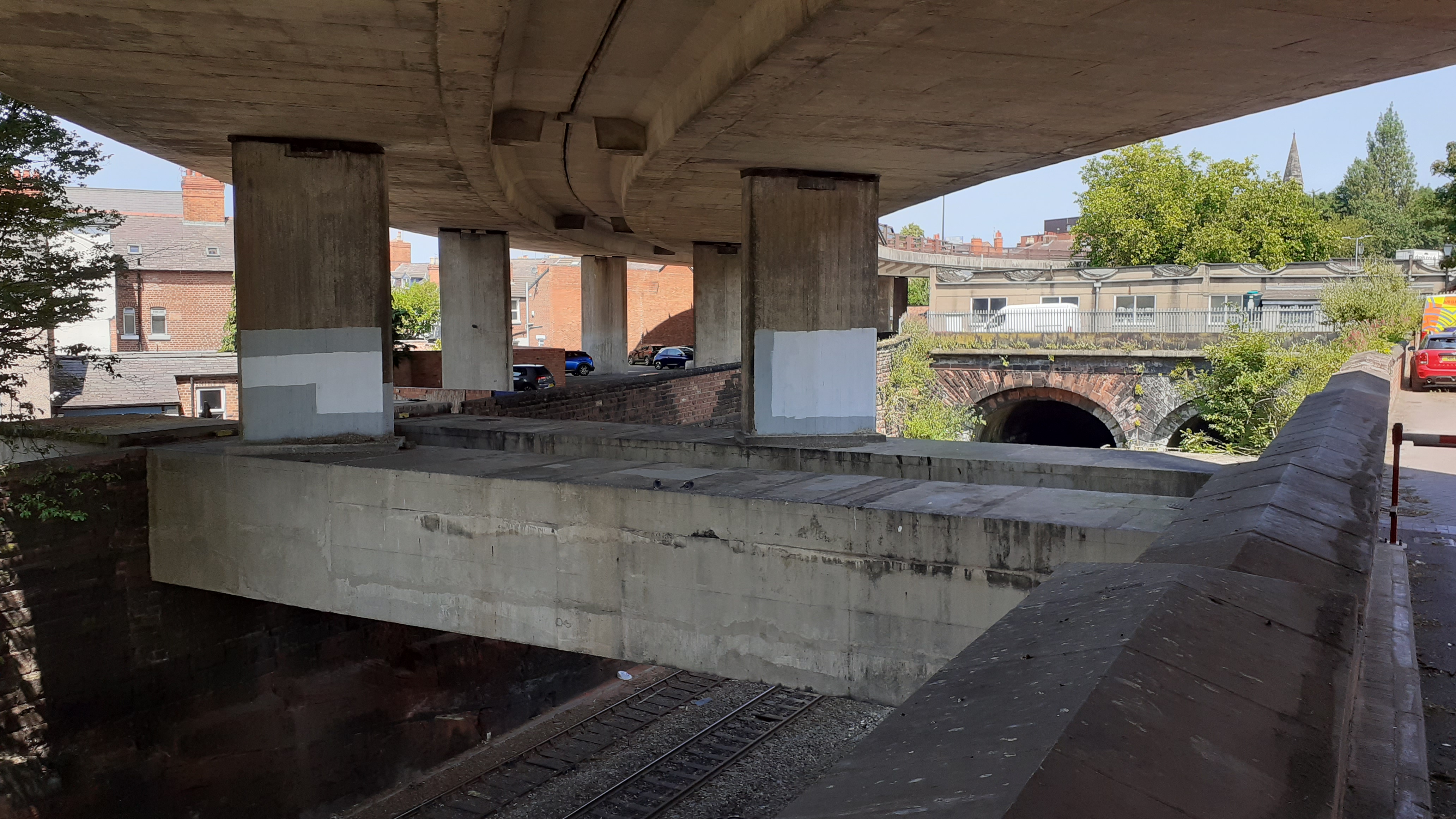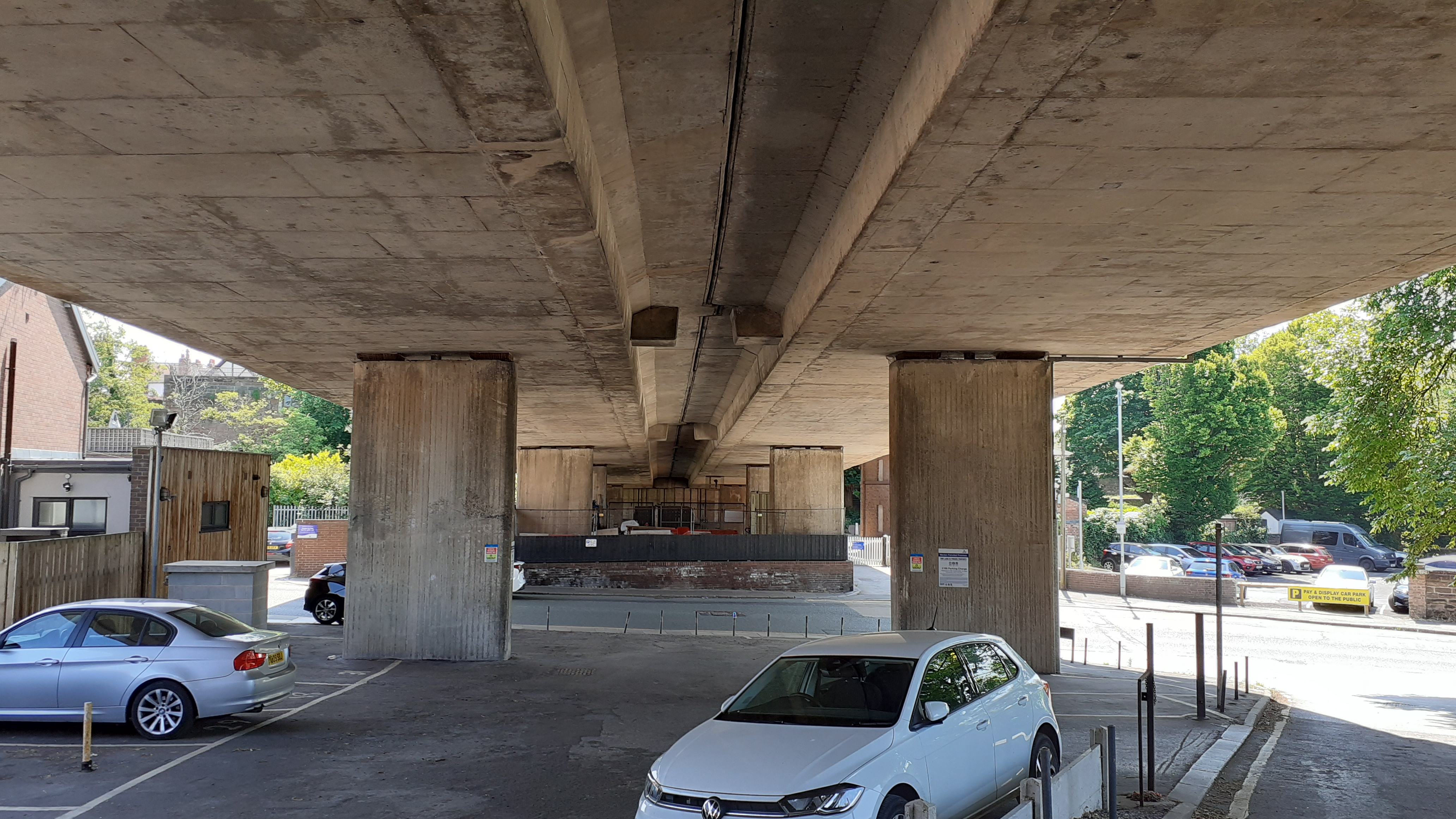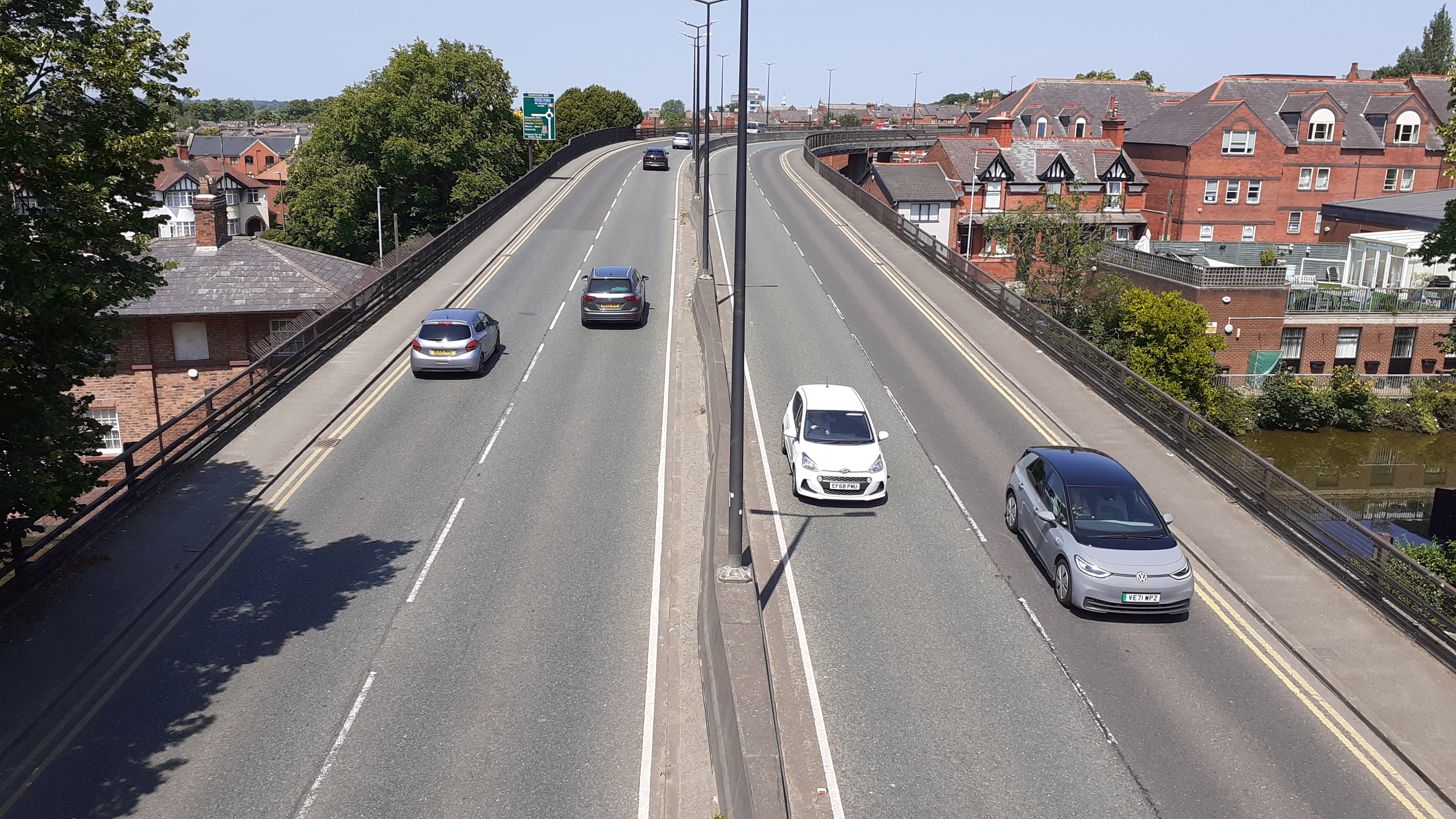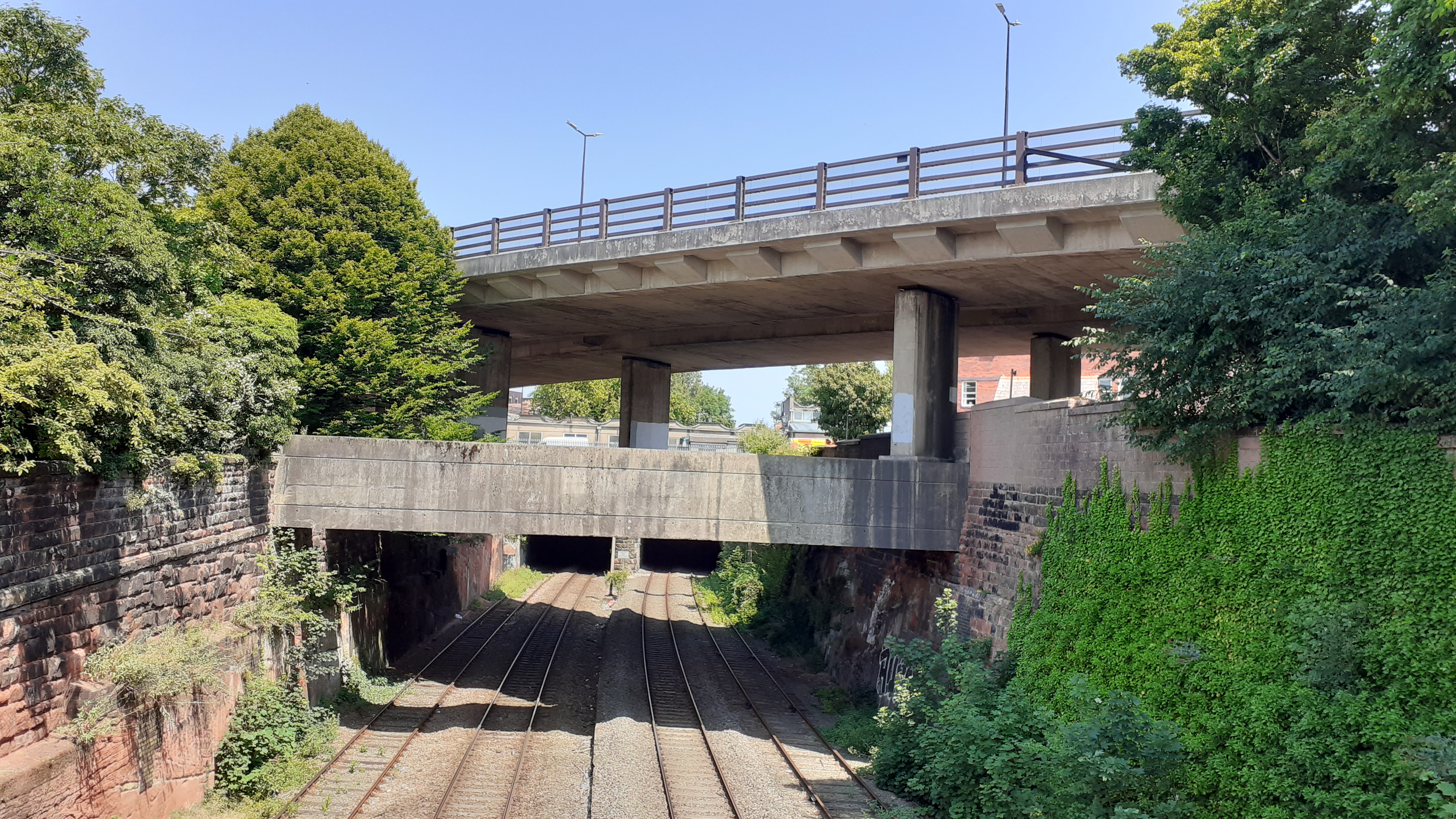Nicholas Street Viaduct inspection
Post-Tensioned Structure Inspection (PTSI) – Nicholas Street Viaduct, St Martin's Way, Chester
Contractor – Balvac
Latest update:
The works to the top of the bridge were completed, and, inspections and investigations have now taken place on sections of the bridge over the side roads, car parks and the canal.
Contractors are now moving onto the section of the bridge that spans the railway. Inspection and investigation works will be taking place under a series of Saturday night railway closures.
The first of the 10 Saturday night closures will be Saturday, 17 January 2026.
When?
Contraflow arrangements have now ended and work is continuing underneath the structure.
Background
Nicholas Street Viaduct is a thirteen span post-tensioned structure that carries the A5268 inner ring road in Chester over side roads, the canal and the main Holyhead railway. The 300m long viaduct was opened in 1966 and extends from the City Walls at St Martins Gate to the Fountains roundabout at the north end of Upper Northgate Street.
What is a post-tensioned bridge?
Post-tensioned bridges use high strength steel tendons embedded in the concrete structure. A special inspection is required to check on the condition of these steel tendons.
What is needed?
The detailed inspection involves breaking out the small areas of concrete to allow the steel tendons to be viewed and inspected. This work needs to take place in various locations, on the top of the bridge, and to the underside including the sections over the railway, the canal and the side roads.
Work to be carried out at the same time
Expansion movements to this large structure are accommodated by carriageway joints at both the south and north ends of the viaduct. These joints are deteriorating and will be replaced with new joints as part of the inspection works. In addition, the drainage gullies over the structure will be jetted to ensure that they are functioning properly.
Work underneath the structure
An inspection to the underside of the structure will also take place over the coming months and this will require short closures of side roads – Canal Street and Garden Lane, access to the Council-owned car park on Garden Lane, as well as to private land. The inspection to the section over the railway will need to be carried out with approval from Network Rail, overnight, when access is available to the railway.




